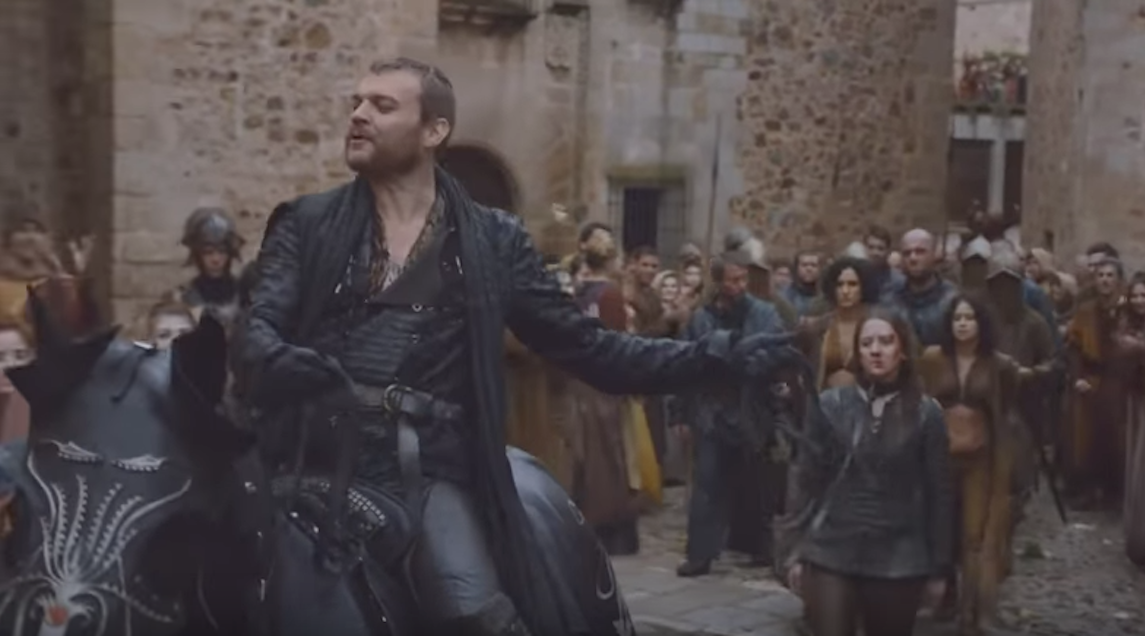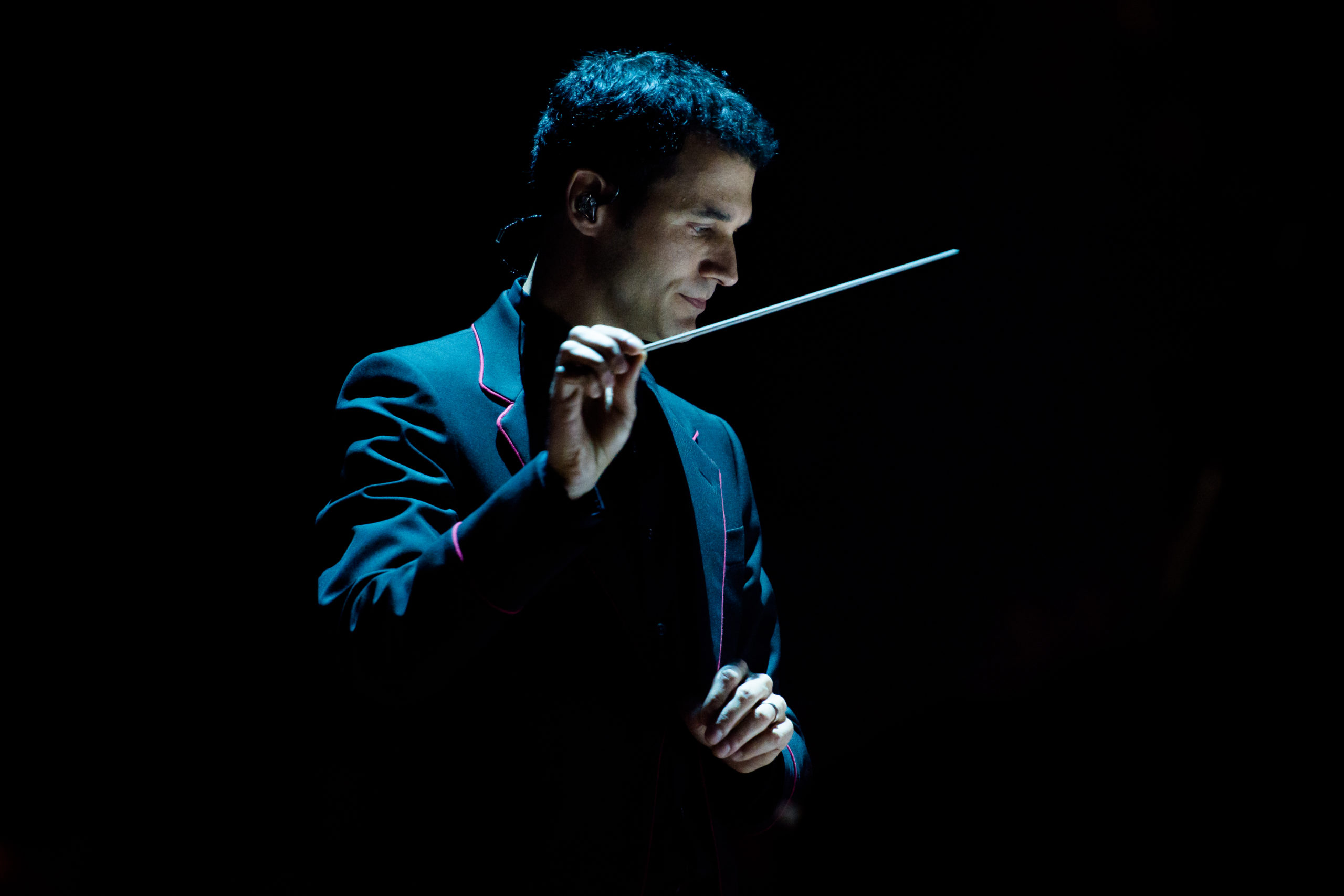As Game of Thrones has rapidly propelled towards its conclusion, the amount of characters appearing in the show has continued to be consolidated, with a few tertiary characters—Melisandre, the Sand Snakes, etc.—orbiting around Jon, Daenerys, Cersei, and their advisors, popping up only to further push their individual stories toward their endings. A show that once developed rich and sprawling storylines for its deep and lovable ensemble cast is being boiled down to just its mushy solids, spoonfeeding the viewer mouthfuls of plot development.
No new characters have been introduced this season, with screen time being devoted to the biggest chess pieces left on the board. There is one exception, though: Euron Greyjoy, who appeared briefly at the end of last season, and has now been given several major set pieces this season. Episode two culminated in his army overtaking the naval fleet run by his niece and nephew, Yara and Theon, in an explosive battle, and in last night’s episode he dragged Yara, Ellaria Sand, and her daughter through King’s Landing, dropping the latter two at Cersei’s feet as a gift to the queen.
Expanding the role of a relatively new character would be a welcome addition to a show that is calcifying, if not for one major problem, which is that Euron deeply sucks. Even before the start of this season, the newfound King of the Iron Islands was being pushed on viewers as something even worse than Ramsay Bolton, the psychotic heir who, across several seasons, tortured Theon, flaying and neutering him over the course of a storyline that was exhausting in its repetitive and useless nihilism. In an interview conducted over the summer, Pilou Asbæk, the actor who plays Euron, seemed to relish in becoming Game of Thrones newest and most ruthless villain. Via Mashable:
“After this season, Ramsay’s gonna look like a little kid,” said Asbæk in an interview with Empire Magazine.
“The psychos I’ve [encountered] have so many different sides to them,” he said. “So each scene I’ve done with Euron, I pick a new thing I wanna show. ‘This scene I wanna be charming.’ ‘This scene I wanna be a molester.’ ‘This scene I wanna kill someone.'”
There are several problems with this. For one, again, Ramsay’s scenes eventually offered very little beyond pure torture porn. He was not an unlikable character in a lovable series as much as he was a curdling agent in a show that was turning sour. The show’s creators breaking from the book to turn Ramsay into an on-screen rapist stands out as a clear moment when Games of Thrones‘ dedication to grotesqueness felt like it stopped having much of a point. But even Ramsay’s motivations were, in the context of the story, understandable: He was a power-hungry bastard who would go to any lengths to prove his legitimacy and usefulness to his father, Roose. That he went so over-the-top in his attempts to do so was ultimately tiring, but the character had at least built up equity over several seasons. Ramsay was also played with genuine and believable evil by Iwan Rheon, who proved his worth as an actor even as the show began to use his character as a simple blunt force instrument.
Euron, on the other hand, has appeared mostly out of nowhere as a force of evil because, I guess, the people who run Game of Thrones now feel that wanton villainy is one of the show’s intrinsic qualities. In the universe of the show, Euron’s motivations are easily understood—he’s pledging his loyalty, and thus the power of the Iron Islands, to Cersei, where Yara and Theon had sided with Daenerys—but the excesses of his evil feel unearned.
When he drags Yara, Ellaria, and her daughter through the streets in this most recent episode, Game of Thrones returns briefly to one of its most controversial scenes ever, when a nude Cersei is pelted with food and garbage after being released by the High Septon, though this time the female characters were kept clothed. But if you think about Euron’s scene for even a few seconds, the internal logic is cloudy at best. Supposedly, the commoners of King’s Landing have gathered to herald Euron helping bring enemies of the crown to justice, and Euron openly marvels that the crowd had gathered to cheer on a Greyjoy. We’re supposed to believe, I guess, that the citizens of King’s Landing are celebrating the capture of the woman (Ellaria) who killed Cersei’s daughter Myrcella, but how would they even know about that? Myrcella’s death happened in secret, far away from King’s Landing. Was there a royal decree? Is it just gossip? Do they really even care, or did they just show up to throw garbage at somebody, anybody? Do they understand why Yara was there with the Sand Snakes, despite having nothing to do with Myrcella’s killing? None of this is clear, and so Euron’s supposedly triumphant moment feels like a cover band playing someone else’s hits.
The glee that Asbæk has for Euron comes through in his acting of the character, but so far it has manifested itself in what feels like a bad rip-off of Heath Ledger’s maniacally evil Joker, who just wants to see the world burn. In theory, perhaps, Asbæk’s flickering eyes and wry smile could be a needed antidote for a show that now mostly consists of major characters delivering solemn monologues, but his scenery-chewing is one-note and tiring in its own way. Game of Thrones has always featured actors who are asked to command scenes as if they’re alone on a stage with a single spotlight encasing them, but characters like Oberyn or Cersei or The Hound have, or had, depth. They were funny, or weirdly likable, or complicated. Euron is a murderous asshole who loves an audience. Okay?
Though Game of Thrones once built a reputation for killing off beloved characters and letting evil triumph, this season will probably culminate in Euron being killed by someone good, or perhaps by someone bad if that person is Cersei. If he does die, his death won’t be therapeutic or cathartic. It will be rote—fiction as a sort of charade, which is, at one point, everything this show opposed.





